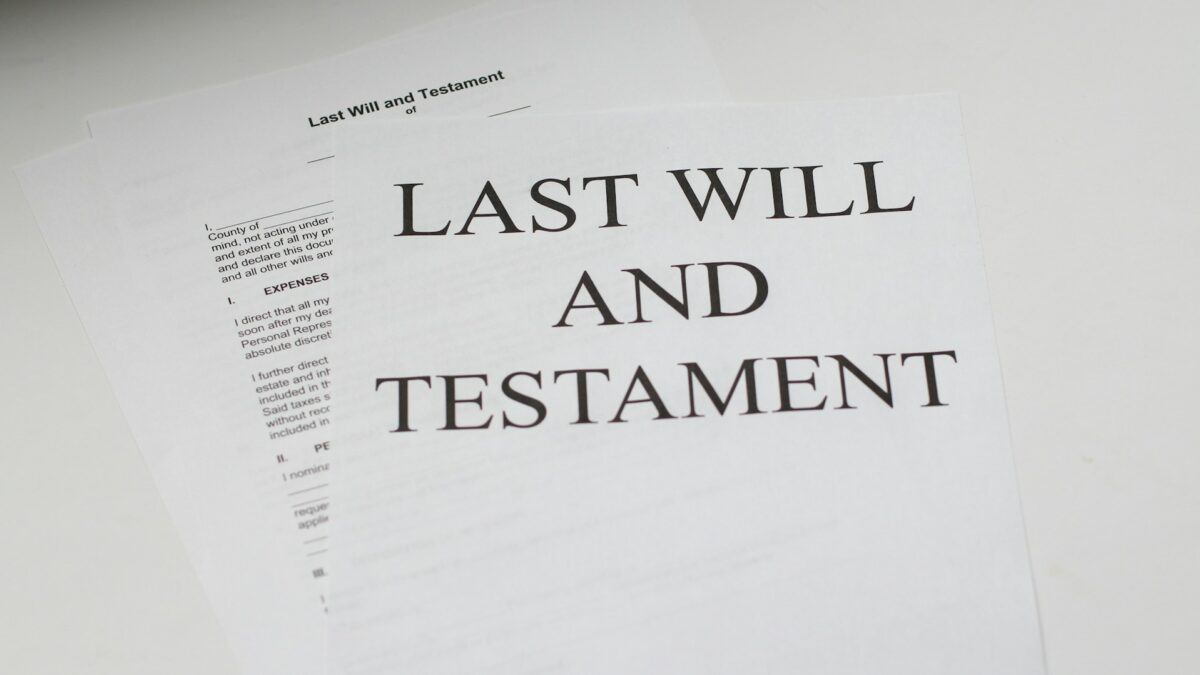What Is Estate Planning?
Estate planning is about creating a roadmap for what happens to your assets and loved ones after your death or if you cannot make decisions during your lifetime. It’s more than writing a simple will; it’s the thoughtful process of inventorying your assets, considering your family and heirs, and planning for different life scenarios. Even if you don’t have vast wealth, you can still shape your personal and financial legacy. For instance, you might want certain family heirlooms to go to a specific person, or you may want to leave a charitable donation. All of this can be set out in your plan.
Comprehensive estate planning often intersects with broader concerns in family law, particularly when minor children, second marriages, or vulnerable dependents are involved. Parents with young or special-needs children may use trusts or special provisions to protect their interests, while individuals going through divorce or remarriage must reconsider beneficiaries and guardianships. In these cases, consulting resources such as family law Hernando County, FL, can provide insights into how family law and estate planning work together to safeguard all those you care about. Establishing clear documentation and seeking the right advice ensures fewer surprises for loved ones and more peace of mind for yourself.
Additionally, healthcare directives and powers of attorney are crucial components that ensure your medical and financial decisions are honored if you cannot voice them. These documents can reduce family conflicts and provide clarity during emotionally charged situations. Ultimately, estate planning is a proactive act of love and responsibility, offering security and guidance to those you leave behind.
Why Estate Planning Matters for Everyone
It’s a common misconception that estate planning is reserved for the wealthy; it’s essential for adults of any age or income level. Over half of American adults do not have a will or advance directive. Dying intestate—without a will—leaves major decisions in the hands of the state, which may disregard your actual intentions. This can lead to unforeseen tax consequences, lengthy probate processes, or even public disputes among heirs. With the average probate taking anywhere from six months to more than a year, the lack of planning can mean unnecessary stress and hardship for those you leave behind.
Plus, estate planning goes beyond financial matters; it includes life decisions such as appointing someone to oversee your healthcare or finances if you become incapacitated. For families with children, it offers the chance to name guardians and ensure their upbringing aligns with your values. Ultimately, estate plans are less about accumulating assets and more about expressing your wishes and alleviating burdens for loved ones during some of life’s most challenging transitions.
Essential Estate Planning Documents
A strong estate plan typically contains several key documents, each tailored to address specific needs:
- A last will outlines who receives your assets, names guardians for minor children, and designates an executor to manage the estate process. State law determines heirs without a will, often leading to outcomes you did not intend.
- Power of Attorney: This grants someone the ability to handle your finances, business matters, and legal affairs if you cannot. This crucial designation avoids court intervention and ensures someone you trust is protecting your interests.
- Healthcare Directive/Living Will: This allows you to state your preferences for medical treatment if you cannot communicate due to illness or injury. It also lets you name a healthcare proxy to decide on your behalf.
- Trusts: Trusts offer greater control over how and when your assets are distributed. For example, parents can hold money in trust until children reach a certain age or maturity level, or set up special needs trusts for vulnerable family members.
These documents clarify your wishes and can dramatically reduce confusion and conflict later. They keep your estate matters private and reduce the potential for lengthy court proceedings.
Common Misconceptions About Estate Planning
Many people delay estate planning, believing they’re either too young, too healthy, or that their assets are too minimal to justify the effort. Another myth is that everything automatically passes to a spouse or closest family member when you pass. While this may be partly true in some states, it often overlooks nuances, like what happens if both spouses pass simultaneously or minor children are involved. Contrary to belief, families of all sizes and incomes face disputes over simple estates when instructions are unclear.
Another common misconception is that your work is done once you create a will. Real estate plans are living documents—they should evolve as your family grows, assets change, or laws are updated. The false sense of security from an outdated plan can inadvertently leave loved ones tied up in red tape, incur unnecessary expenses, or miss out on benefits you intended for them.
Steps to Build an Effective Estate Plan
Building a comprehensive estate plan allows you to reflect on your values and carefully outline key responsibilities. Here’s a common approach that works for most situations:
- Inventory your assets: List real estate, vehicles, investment accounts, retirement funds, life insurance, heirlooms, digital property, business interests, and sentimental items like photographs or journals.
- Define your objectives: Think carefully about your goals. Who should receive which assets? Are there family dynamics that might lead to conflict? Do you wish to support a charity or leave a legacy in your community?
- Select trusted individuals: Appoint an organized and trustworthy executor and select guardians for minor children. If you anticipate disputes, consider naming a neutral, third-party executor.
- Create legal documents: Work with qualified professionals to draft a will, advance directive, power of attorney, and, if needed, trusts. Customize documents to your situation, considering tax consequences and probate avoidance strategies.
- Communicate and store securely: Let key people know about their roles and the location of documents. Secure storage and open communication help avoid confusion during emergencies.
Consistent reviews and updates—triggered by life changes like births, deaths, divorces, or asset changes—keep your plan effective and aligned with your intentions.
Considering Family Dynamics and Complexities
Estate planning becomes especially crucial when dealing with blended families, sibling rivalries, estranged relatives, or family-owned businesses. Open communication is essential—surprising loved ones with unexpected will provisions or trust arrangements can lead to resentment or even legal disputes. Proactively holding family meetings, often with the guidance of a neutral estate planner or mediator, can promote transparency and minimize conflict before it arises.
Transparent and honest discussions about your intentions can help prevent will contests and costly court battles that drain financial resources and family goodwill. When tensions are anticipated, appointing an impartial trustee or executor, rather than a family member, can further preserve harmony and maintain professionalism throughout the process.
Updating Your Estate Plan Over Time
Estate planning is not a static process as your life changes—through marriage, divorce, having children or grandchildren, buying or selling property, or even the death of an intended beneficiary, your estate plan should change with it. Professionals recommend revisiting your estate plan every three to five years, or after every major life event, to ensure it reflects your current wishes and circumstances.
Failing to update your will, trust, or beneficiary designations can result in assets unintentionally going to former spouses, estranged relatives, or even the state. Proactive updates provide clarity for your loved ones and minimize the chance of legal complications and time-consuming probate issues.
Resources for Expanding Your Knowledge
Access to estate planning information has never been better. State bar associations, public libraries, consumer financial protection agencies, and reputable online resources offer invaluable guides, checklists, and sample documents. Workshops and seminars—virtual or in-person—can give you both the basics and deep dives on trusts, probate, guardianships, or powers of attorney. For those wanting to go further, working with estate planning attorneys, financial planners, and even tax professionals brings peace of mind and a layer of protection for your loved ones.
Building your knowledge empowers you to ask the right questions, recognize red flags, and ensure your estate plan fits your unique needs, giving you confidence that your legacy will be honored and your loved ones cared for.
Related posts
More Reads
Forging a Path in Construction: Starting Strong in Heavy Equipment Operation
Starting a new career can open doors to financial security and long-term satisfaction—especially in a fast-growing, high-demand field. For those…
How to Keep Your Carpets Fresh and Allergen-Free Year Round
Keeping your carpets clean is fundamental not only for the look and feel of your living space but also for…



